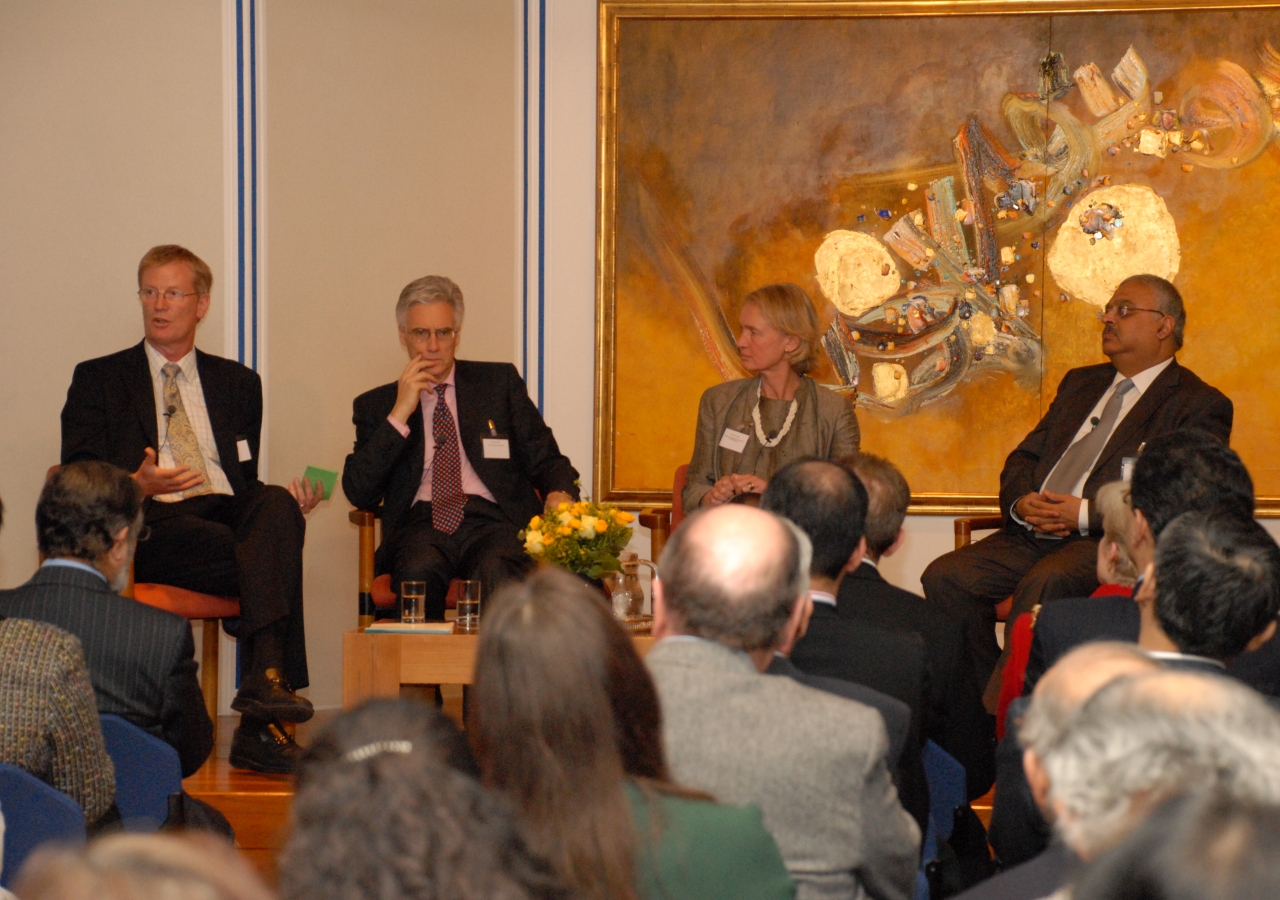On Wednesday, 18 February, guests at the Ismaili Centre Lecture Series in London found themselves captivated by the vibrant panel discussion taking place before them. The “hot” topic was global warming, and its impact on the developing world. The audience quickly discovered it to be an issue that offers no easy answers.
The panel was chaired by Dan Smith of International Alert, a London-based international peace-building organisation. He was joined by Camilla Toulmin of the International Institute for Environment and Development, an independent think-tank, and Lord Adair Turner, Chairman of both the United Kingdom Government's Committee on Climate Change and the country's independent Financial Services Authority. Dr Salim Sumar, Executive Officer of Focus Humanitarian Assistance (FOCUS) Europe, completed the panel.
In addition to exploring the causes of climate change and possible ways to mitigate its impact, the panel sought to look at the issue from a different perspective. Although the current discourse around climate change focuses on its consequences for the natural environment, these consequences also carry social implications that have a profound bearing on the work of FOCUS.
FOCUS, an affiliate of the Aga Khan Development Network, aims to foster disaster-resilience in communities that are particularly vulnerable to natural and man-made disaster. It also extends humanitarian relief and recovery in the wake of disasters.
The panel began by examining the potential impact of global warming on economic development. Storms affected by climate change can damage or destroy infrastructure that is critical to the functioning of an economy. Moreover, many countries are experiencing new rainfall patterns. Southern Africa is receiving less precipitation, rendering the region prone to drought, while increased rainfall in the northern and eastern parts of the continent result in flooding.
Such changes, speculated the panel, would create winners and losers – and that this could lead to conflict.
Sumar noted that effective responses to disasters are less simple than they were in the past, and that more NGOs are needed to help in regions affected by floods. In addition, Smith pointed out that the impact of disasters is difficult to confine within borders; floods that affect India, for example, go on to affect Bangladesh.
Lord Turner reflected on the UK's leadership role. He observed that even if global targets are met, global temperatures may still increase two degrees by 2020. The panellists agreed, as discussion moved to the United Nations Climate Change Conference in Copenhagen planned for December 2009, that the UK and the United States had to take the lead in swaying other countries in a positive direction.
But international diplomacy is only one part of a broader shift in thinking. There is a need for governments and civil society to “start measuring what we value, rather than just economic factors,” said Toulmin. This should result in a shift towards cooperation and away from conflict; economic growth should not be the only driving factor in decision making. However, Lord Turner felt that “we can solve climate change and still have growth in GDP, as long as we don't make it as much of an end as we have in the past.”
Recent years have seen climate change established as a fact. Now the challenge is to arrest the pace of this change and assist the poorest in mitigating its impact on their livelihoods. Asked what single thing could most help to mitigate conflict stemming from climate change, Toulmin summed up: “Real security comes from building a climate of trust, rather than building a climate of fear.”








